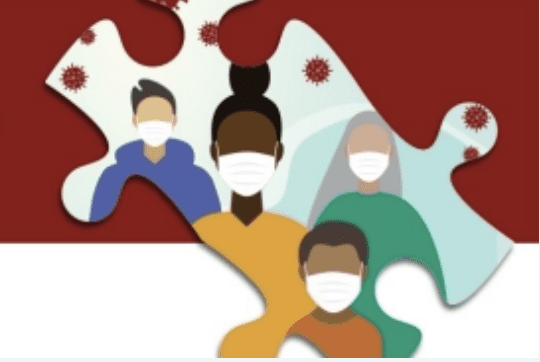Search Posts
Recent Posts
- In the News… a recap of news of the week, ending April 19th April 19, 2025
- We Cook: Mill’s Tavern’s Long Island Duck Breast with carrot puree, pickled cherries, walnuts… April 19, 2025
- Burn with Kearns: A matter of honor, and neuroscience. Self defense 4 U – Kevin Kearns April 19, 2025
- Rabbis reflect on the meaning and observance of Passover – G. Wayne Miller, Ocean State Stories April 19, 2025
- Rhode Island Weekend Weather for April 19/20, 2025 – Jack Donnelly April 19, 2025
Categories
Subscribe!
Thanks for subscribing! Please check your email for further instructions.

The Pandemic Puzzle: Lessons from COVID-19. Free, virtual symposium
The Stanford School of Medicine and Stanford Graduate School of Business will convene experts in health care, business and government to discuss the global response to the COVID-19 pandemic, lessons for recovery and how to prepare for future health threats.

The COVID-19 pandemic has killed millions, threatened the health of billions and disrupted every aspect of society. And while its impact will be felt for decades, COVID-19 won’t be the last global threat of its kind. What we do to prepare for the next one is critical.
That reality is the motivation for an ambitious symposium series presented by Stanford Medicine and the Stanford Graduate School of Business that will convene eminent experts — across health care, business and government — to discuss the global COVID-19 response, lessons for recovery and how we can better prepare for future threats.
By capturing a wealth of perspectives and spotlighting innovative thinking, The Pandemic Puzzle: Lessons from COVID-19 series will help define how different sectors might rebuild to emerge stronger and more resilient.
The virtual, interactive, multi-day symposium is free and open to the public.
“We have a once-in-generations opportunity — and a profound responsibility — to learn from this crisis and recreate a health system that is more responsive, efficient and equitable,” said Lloyd Minor, MD, the Carl and Elizabeth Naumann Professor and dean of the Stanford School of Medicine. “This conference will be an important step toward making that happen.”
Jonathan Levin, PhD, Philip H. Knight Professor and dean of Stanford Graduate School of Business, who is co-hosting the conference with Minor, said that the next few years will be critical. “We must seize the moment and the momentum,” he said. “The pandemic disrupted the health system and our entire economy, revealing weaknesses and disparities. We can use that information and insight to build a stronger foundation and a brighter future.”
Conference attendees will hear the latest thinking from leading epidemiologists and public health officials, business leaders in vaccination development and delivery, and the policymakers who were on the front lines of the global response. Speakers include Janet Woodcock, MD, acting commissioner of the U.S. Food and Drug Administration; Andy Slavitt, a former senior adviser from President Joe Biden’s COVID-19 response team; Sally Susman, chief corporate affairs officer at Pfizer; Soumya Swaminathan, chief scientist at the World Health Organization; renowned economist Alex Tabarrok, PhD; and Marcella Nunez-Smith, MD, MHS, chair of the White House’s COVID-19 Health Equity Task Force.
Joined by leading faculty from the Stanford School of Medicine and Stanford Graduate School of Business, the conference will cover multiple aspects of the pandemic and the global response. Panelists and session participants will explore the intersecting roles of government, business, health care and academia; the pandemic’s impact on American households and the global economy; underlying issues of access, equity and community health and their importance in improving a future pandemic response; the need to modernize critical elements of our global health systems; the pandemic’s knock-on effects and their impact on education and housing; and the potential of cutting-edge technologies and biomedical research to blunt or even prevent future pandemics.
Five sessions will be held – all free and open to the public. They are:
Responding to a Global Pandemic – September 17, (now available for review on YouTube recording)
Building Toward Health Equity and an Inclusive Recovery – October 13, 8:30 am–11:45 am PT
Tracking and Mitigating a 21st Century Pandemic – October 28, 10:30 am–2:00 pm PT
Agile Discovery and Innovation: Advancing Tomorrow’s Vaccines, Treatments, and Cures – November 19, 8:30 am–12:00 pm PT
